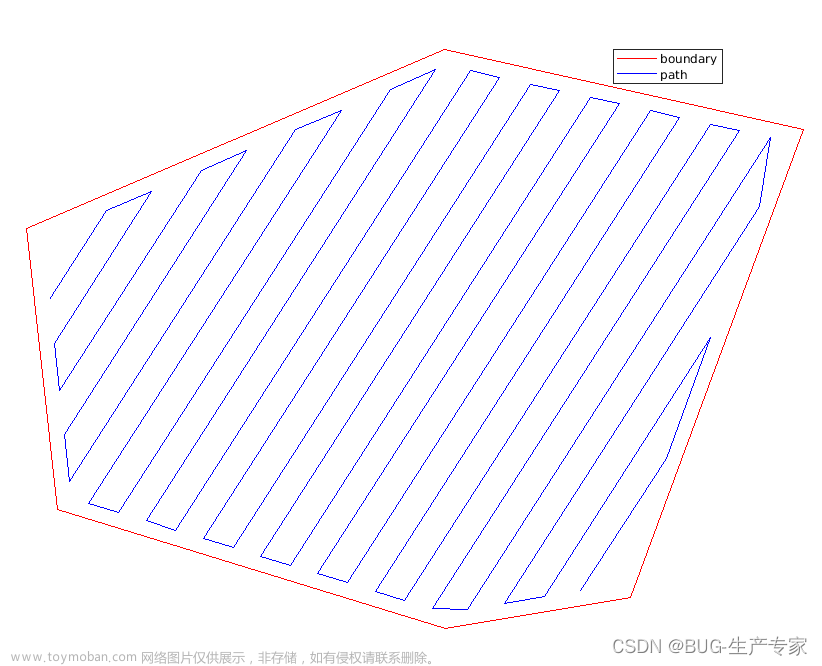在MoveIt中,你可以通过添加一个定向约束(Orientation Constraint)来限制机器人的末端执行器(End Effector)的姿态。这是一个基本的例子:
首先,你需要定义一个moveit_msgs::OrientationConstraint对象并填充相应的字段。以下是一个例子,它将末端执行器的姿态限制在一个特定的四元数方向:
moveit_msgs::OrientationConstraint ocm;
ocm.link_name = "panda_link8"; // or whatever your end effector link is
ocm.header.frame_id = "panda_link0"; // or whatever your planning frame is
ocm.orientation.w = 1.0; // Specify the desired orientation here
ocm.absolute_x_axis_tolerance = 0.1; // Specify the tolerances here
ocm.absolute_y_axis_tolerance = 0.1;
ocm.absolute_z_axis_tolerance = 0.1;
ocm.weight = 1.0;
这里,orientation字段定义了期望的姿态,而absolute_x/y/z_axis_tolerance字段定义了对应方向上的容忍度。权重weight越大,该约束越重要。
然后,你可以将这个约束添加到你的moveit_msgs::Constraints对象中,并在规划你的运动时将其包含进去:
moveit_msgs::Constraints test_constraints;
test_constraints.orientation_constraints.push_back(ocm);
move_group.setPathConstraints(test_constraints);
注意,虽然这样可以设置方向约束,但不是所有的规划器都支持这种约束。例如,基于采样的规划器(如RRT和PRM)通常可以处理这种约束,但一些其他的规划器可能无法处理。
在你完成了使用约束的规划后,记得清除路径约束,否则它们会在下一次规划中继续有效:
move_group.clearPathConstraints();
以上代码是使用C++ API的例子,如果你在使用Python API,API方法和结构类似,只是语法略有不同。
注意,这只是一种可能的实现方式。实际上,根据你的具体应用,可能有其他方法来保持末端执行器的姿态不变。
请用python API实现上述约束
在MoveIt的Python API中,你可以使用相应的方法来实现上述约束。这是一个如何添加定向约束(Orientation Constraint)的基本例子:
from moveit_msgs.msg import OrientationConstraint
from geometry_msgs.msg import Quaternion
import moveit_commander
# Initialize the move_group API
moveit_commander.roscpp_initialize(sys.argv)
robot = moveit_commander.RobotCommander()
scene = moveit_commander.PlanningSceneInterface()
group = moveit_commander.MoveGroupCommander("panda_arm")
# Create an OrientationConstraint
oc = OrientationConstraint()
oc.link_name = "panda_link8"
oc.header.frame_id = "panda_link0"
oc.orientation = Quaternion(0.0, 0.0, 0.0, 1.0) # specify the desired orientation here
oc.absolute_x_axis_tolerance = 0.1
oc.absolute_y_axis_tolerance = 0.1
oc.absolute_z_axis_tolerance = 0.1
oc.weight = 1.0
constraints = moveit_commander.Constraints()
constraints.orientation_constraints.append(oc)
group.set_path_constraints(constraints)
请注意,上述代码中的四元数(Quaternion)表示了期望的末端执行器的姿态。四元数是一种用于表示空间旋转的数学结构,你应该将这里的四元数替换为你自己期望的末端执行器的姿态。
和之前一样,当你完成了使用约束的规划后,记得清除路径约束,否则它们会在下一次规划中继续有效:
group.clear_path_constraints()
再次强调,不是所有的规划器都支持这种约束。例如,基于采样的规划器(如RRT和PRM)通常可以处理这种约束,但一些其他的规划器可能无法处理。文章来源:https://www.toymoban.com/news/detail-490123.html
设置关节约束,代码示例如下:文章来源地址https://www.toymoban.com/news/detail-490123.html
joint_constraint = moveit_msgs.msg.Constraints()
joint_constraint.name = "joint_constraints"
joint_constraint.joint_constraints.append(moveit_msgs.msg.JointConstraint(joint_name="panda_joint1", position=0.5, tolerance_above=0.1, tolerance_below=0.1, weight=1.0))
joint_constraint.joint_constraints.append(moveit_msgs.msg.JointConstraint(joint_name="panda_joint2", position=-1.0, tolerance_above=0.1, tolerance_below=0.1, weight=1.0))
move_group.set_path_constraints(joint_constraint)
到了这里,关于如何限制moveit进行规划的时候panda机器人的末端姿态角是不变的的文章就介绍完了。如果您还想了解更多内容,请在右上角搜索TOY模板网以前的文章或继续浏览下面的相关文章,希望大家以后多多支持TOY模板网!









